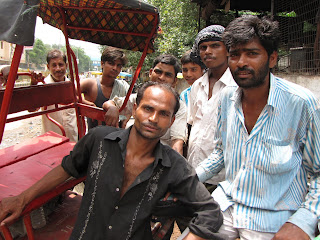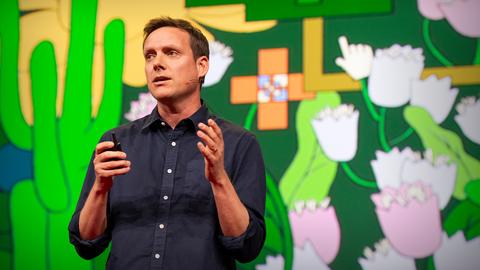A giant market opportunity for micro credit banking in urban centers of India.
Sent to you by Saugat via Google Reader:
One of our MRAP participants has received funding to study how Rickshaw pullers from Delhi manage their money. Last week, I participated in interviewing several groups of Rickshaw pullers.
The study focused on understanding where these pullers migrated from, what kind of life style they lead, how much they make and spend, what kind of items they spend on (such as alcohol, tobacco etc), how many meals they take per day, etc. Most of the Rickshaw pullers I met that day were from Bihar and shared similar stories. On an average day, they made Rs. 200-250, out of which they paid Rs. 50 to the owner, spent Rs. 20 on alcohol and/or tobacco and Rs. 20 on food and the rest they used on paying loans or saved the money. Not surprisingly, none of them had bank accounts. Some of the interesting observations that I made that day were:
- None of them skipped their meals in order to save for the future.
- They had a very strong social network, however, only within their village group. Some pullers have been in Delhi for 10 years, yet, they never talked with any other pullers from other places even though they operated in the same neighborhood. They preferred borrowing and lending among these few trusted friends only.
- Only one had a rental apartment as he had recently got his wife and children to Delhi. The rest of them slept under the bridges or the rickshaw garages, used public toilets, skipped meals if failed to make enough money on any day, and surprisingly, one of them mentioned that he preferred having alcohol than food.

The only way for them to transfer money to their loved ones in their respective villages was through local travelers who came to the city from their villages to collect money from them. Obviously, such money collectors charged for their services. Whenever such people came to the city, these Rickshaw pullers borrowed money from the local moneylenders. One group relied on a manager of a local motel, and the other group relied on an owner of a tea shop. They viewed these moneylenders as saviors and had high regards for them.
It was interesting to understand that in order to send money to their families, these Rickshaw pullers paid interests to two parties - one to the moneylender and the other to the person who came from the village to collect money from them. Most of them realized this problem and expressed their desire to open bank accounts. The following were some other observations:-
- Most of them knew about smart cards, ATMs
- One puller even knew that money could be transferred through the internet
- All of them mentioned that they wanted to open bank accounts. All of them asked how we could help them in opening bank accounts.
It was interesting to find out that all of the Rickshaw pullers I met that day expressed the importance of bank accounts and talked how they could just deposit whatever they save and transfer money to their families without paying anything to the moneylender and the traveler (money collector!). However, none of them knew the procedures to open bank accounts. Alas!!!
Things you can do from here:








